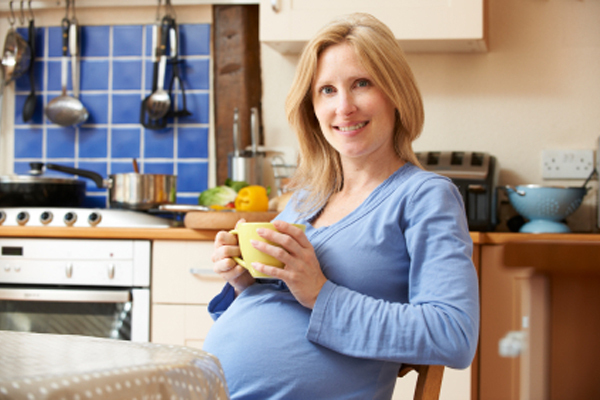We’ve all heard that too much caffeine is a huge no-no for you and your baby during pregnancy, and, as a result, many mothers-to-be tend to avoid coffee during those 40 weeks. If you still need your caffeine fix to get you through the day, Health Canada recommends a maximum daily caffeine intake of no more than 300mg (a little over two 8oz cups of coffee, or one Grande from Starbucks).
But if you want to avoid coffee altogether to help you avoid going over your caffeine limit, tea is another great option, as it still gives you a caffeine hit, but at a much lesser dose than coffee. According to Health Canada, a cup of coffee has approximately 135mg of caffeine, while black tea has only 43mg per cup, and green tea has only 30mg.
What many pregnant women may not realize, however, is that even if you’re drinking caffeine-free teas, such as rooibos and herbal teas, there are still many herbs and other ingredients that can appear in teas that one should avoid during pregnancy. According to Health Canada, this includes:
-
Aloe
-
Buckthorn bark
-
Chamomile
-
Coltsfoot
-
Comfrey
-
Duck root
-
Juniper berry
-
Labrador
-
Lobelia
-
Pennyroyal
-
Sassafras
-
Senna leaves
Although the above ingredients are the only ones advised against by Health Canada, other pregnancy sites suggest that women also avoid some other herbs, including:
-
Anise
-
Catnip
-
Ephedra
-
European mistletoe
-
Hibiscus
-
Horehound
-
Lemongrass
-
Licorice root
-
Mugwort
-
Rosemary
-
Sage
-
Stinging nettle leaf
-
Vetiver
-
Yarrow
So whether you’re expecting a new baby or have a friend or family member who is, make sure that you’re checking the ingredients list on your favourite teas!

